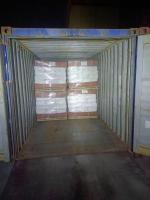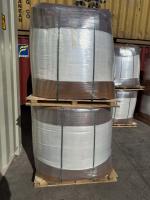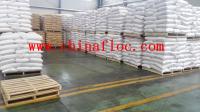Our Products
Flocculant / What kind of anionic flocculant is suitable for building piling?

What kind of anionic flocculant is suitable for building piling?
Anionic flocculants are water-soluble polymers widely utilized in various industrial processes, particularly in construction and civil engineering. One significant application of these flocculants is in bored piling, a foundational technique critical for constructing stable and robust structures. This comprehensive exploration will cover the role, benefits, application techniques, challenges, and future trends of anionic flocculants in bored piling.
1. Understanding Bored Piling
Bored piling, also referred to as drilled shaft piling, is a method of creating deep foundations by drilling a cylindrical hole into the ground and then filling it with concrete and reinforcement. This technique is particularly advantageous in areas with challenging soil conditions, where traditional shallow foundations may be inadequate. The bored piling process is essential for supporting heavy structures such as high-rise buildings, bridges, and industrial facilities.
2. Role of Anionic Flocculants in Bored Piling
Anionic flocculants serve several critical functions in the bored piling process:
-
Soil Stabilization: During the drilling process, soil can become unstable, particularly in loose or saturated conditions. Anionic flocculants enhance soil stability by promoting the agglomeration of fine soil particles, thus reducing the risk of borehole collapse.
-
Sediment Control: As drilling progresses, fine particles are disturbed and suspended in the drilling fluid. Anionic flocculants facilitate the settling of these particles, reducing turbidity in the drilling fluid and improving visibility for operators.
-
Fluid Management: In bored piling, maintaining the properties of the drilling fluid is crucial. Anionic flocculants help to optimize fluid viscosity and reduce fluid loss to surrounding soils, ensuring that the drilling operation proceeds smoothly.
3. Benefits of Using Anionic Flocculants in Bored Piling
The incorporation of anionic flocculants into the bored piling process offers numerous advantages:
-
Enhanced Operational Efficiency: By improving soil stability and fluid management, anionic flocculants allow for more efficient drilling operations, minimizing downtime and delays.
-
Cost-Effectiveness: The use of anionic flocculants can lead to reduced material costs, as they help to control the volume of drilling fluids needed and minimize the use of other stabilizing agents.
-
Environmental Considerations: Anionic flocculants are generally considered environmentally friendly. Their use reduces the risk of sediment runoff and contamination in surrounding areas, aligning with modern sustainability goals in construction.
-
Improved Safety: The stabilization provided by anionic flocculants helps prevent borehole collapse, reducing the risk of accidents and enhancing worker safety on-site.
4. Application Techniques for Anionic Flocculants
To effectively utilize anionic flocculants in bored piling, specific application techniques are employed:
-
Preparation of Drilling Fluid: Anionic flocculants are typically mixed with water to create a drilling fluid or slurry. The concentration of the flocculant is adjusted based on soil conditions and project requirements, ensuring optimal performance.
-
Continuous Addition During Drilling: As the borehole is drilled, anionic flocculants are added continuously to the drilling fluid to maintain the desired viscosity and stability. This ongoing addition helps manage sediment and control fluid loss.
-
Post-Drilling Treatment: After the drilling process, the use of anionic flocculants may continue to aid in the settlement of cuttings and the clarification of the drilling fluid before the concrete is poured into the borehole.
5. Challenges and Considerations
While anionic flocculants offer significant benefits, there are challenges and considerations to keep in mind:
-
Selection of Flocculant Type: The effectiveness of anionic flocculants can vary based on their molecular weight and charge density. Choosing the right type of flocculant for specific soil conditions is essential to achieve the desired outcomes.
-
Dosage Optimization: Finding the optimal dosage of anionic flocculants is crucial. Too little may not provide adequate stabilization, while too much can lead to excessive viscosity, hindering the drilling process.
-
Environmental Impact Monitoring: Although generally safe, large-scale use of anionic flocculants requires monitoring to ensure there are no adverse effects on local ecosystems and groundwater.
6. Real-World Applications and Case Studies
Several case studies highlight the successful application of anionic flocculants in bored piling:
-
High-Rise Building Projects: In urban environments, where space and soil conditions can be problematic, anionic flocculants have been employed to stabilize boreholes for high-rise constructions. Their ability to maintain borehole integrity has proven essential in these projects.
-
Bridges and Infrastructure Development: Anionic flocculants have been used in bridge construction, particularly in locations with varying soil types. They help to enhance the load-bearing capacity of bored piles, ensuring safety and stability.
-
Difficult Geological Conditions: In projects where groundwater levels are high or soil is particularly loose, anionic flocculants provide necessary support. Their use in these situations has led to successful outcomes and minimized the risk of structural failures.
7. Future Trends in the Use of Anionic Flocculants
As construction practices evolve, the use of anionic flocculants in bored piling is likely to increase. Future trends may include:
-
Innovations in Polymer Technology: Research and development in polymer chemistry may lead to the formulation of more efficient and effective anionic flocculants tailored for specific applications in construction.
-
Integration with Smart Monitoring Systems: The incorporation of technology to monitor soil conditions and drilling fluid properties can enhance the effectiveness of anionic flocculants, allowing for real-time adjustments during the bored piling process.
-
Focus on Sustainability: As the construction industry increasingly prioritizes sustainability, the demand for environmentally friendly solutions like anionic flocculants will likely rise. Continued innovation in this area will help meet these goals.
Conclusion
Anionic flocculants play a critical role in the success of bored piling operations, providing essential functions that enhance efficiency, safety, and environmental compliance. By stabilizing soil, managing sediments, and optimizing fluid properties, these flocculants contribute significantly to the construction of robust and stable foundations. As technology advances and the industry evolves, the applications of anionic flocculants in bored piling are expected to expand, leading to more effective and sustainable construction practices for future projects.




